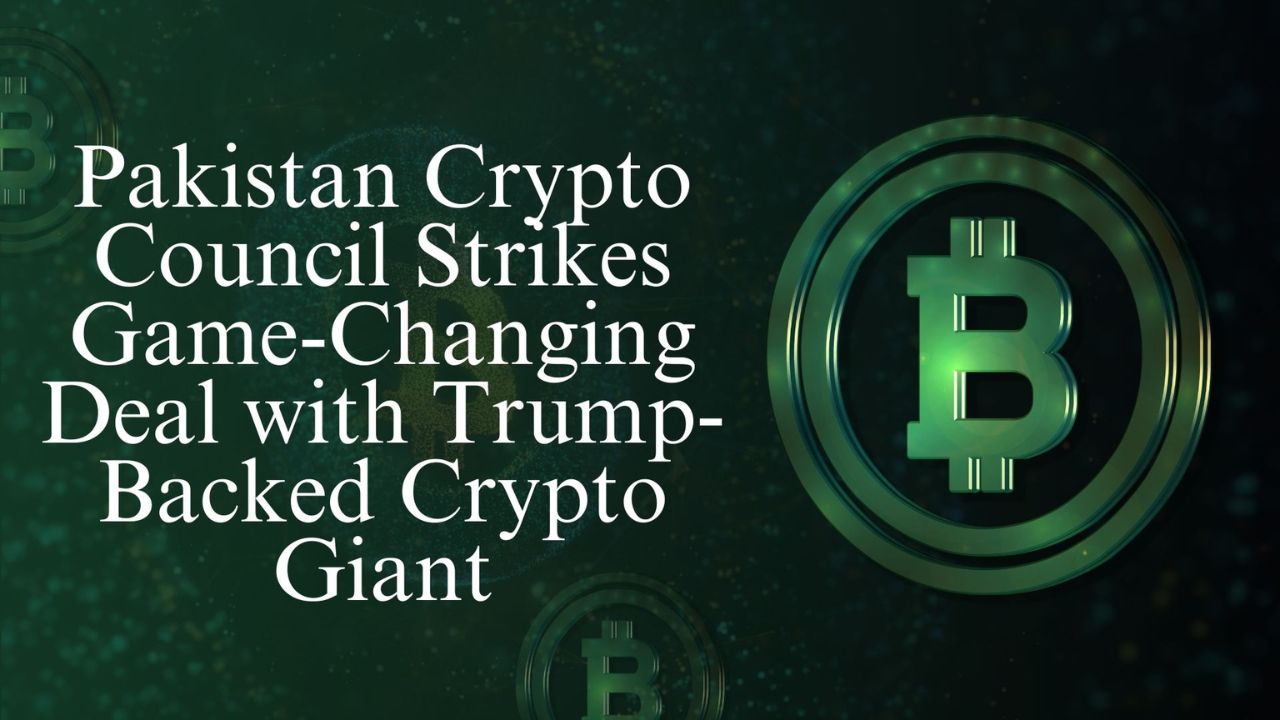In a move that could redefine Pakistan’s place in the global digital economy, the Pakistan Crypto Council (PCC) has struck a groundbreaking deal with World Liberty Financial (WLF), a rising decentralized finance platform with deep ties to former U.S. President Donald Trump. Few saw coming, but it now has the country buzzing with possibilities, excitement, and plenty of cautious optimism.
The landmark agreement, signed at a high-profile event in Islamabad earlier this week, marks what many insiders are calling a “watershed moment” for Pakistan’s emerging blockchain sector. Some of the most influential figures in both organizations were on hand to seal the deal, including PCC CEO Bilal Bin Saqib and senior WLF executives Zachary Folkman, Zachary Witkoff, and Chase Herro. The meeting wasn’t limited to crypto insiders either. It pulled in some of the highest tiers of Pakistan’s government leadership, including Prime Minister Shehbaz Sharif, Chief of Army Staff General Asim Munir, and Deputy Prime Minister Ishaq Dar.
This wasn’t just about handshakes and photo ops. According to sources close to the negotiation, the Pakistan Crypto Council and World Liberty Financial have mapped out an aggressive, multi-pronged strategy designed to launch Pakistan into the global digital economy in a big way.
At the heart of the agreement is a shared vision: making blockchain and decentralized finance not just fringe concepts but core pillars of Pakistan’s economic future. Under the new partnership, the PCC and WLF plan to introduce regulatory sandboxes where blockchain financial products can be tested safely and efficiently. This move alone signals a big shift—regulatory uncertainty has long been a major hurdle for crypto entrepreneurs and investors in the region.
But that’s just the beginning. The deal also intends to increase the use of stablecoins in trade and remittances, which is a crucial move for a nation such as Pakistan, where remittances are responsible for an important percentage of GDP. It is possible that stablecoins will assist Pakistanis who are working overseas to send funds to their home countries faster, more cheaply, and more efficiently as compared to traditional banking channels.
Perhaps even more ambitiously, the deal sets the stage for tokenizing real-world assets such as real estate and commodities. Tokenization could open the door to fractional ownership models that allow everyday Pakistanis to invest in previously inaccessible markets, dramatically broadening financial inclusion.
Finance Minister Muhammad Aurangzeb didn’t mince words when he spoke at the ceremony. “Pakistan’s youth and technology sector are our greatest assets,” he said. “Through partnerships like this, we are opening new doors for investment, innovation, and global leadership in the blockchain economy.” Considering that over 64% of Pakistan’s population is under 30, the opportunity for disruption—and positive change—is enormous.
This game-changing deal couldn’t have come at a more pivotal time. Following years of indecision, the Pakistani government has finally begun getting on board with the notion of formalizing the regulation of crypto. The government has signalled that extensive legalization plans are coming up soon, making Pakistan among the fastest-growing cryptocurrency markets in the world.
To Bilal Bin Saqib, who is a charismatic and efficient chief executive officer of the Pakistan Crypto Council, the arrangement with WLF is more than the transaction of a business transaction. The agreement also serves as a cause. “Our collaboration with World Liberty Financial is not just an agreement but a strategy aimed at empowering our young population and connecting Pakistan to the global financial future,” Bilal Bin Saqib stated in an invigorating speech during the event. My recent appointment as a strategic advisor to WLF is going to strengthen the ties between these two organisations.
In the opposite direction, World Liberty Financial brings its brand of ambition to the scene. It was launched in September 2024, and with the backing of a variety of notable people who share Trump’s business goals post-presidency, WLF intends to establish a DeFi empire that has an American-centric approach. Their goal? To revolutionize global finance through blockchain technology, on terms that favour decentralization, innovation, and what they describe as “economic sovereignty.”
Of course, there are skeptics. Some analysts warn that the crypto industry’s history of volatility, fraud, and regulatory battles could pose risks for Pakistan if not managed carefully. There are also concerns about whether Pakistan’s financial infrastructure is strong enough to handle this kind of massive digital shift. In the end, blockchain isn’t magic; it demands a strong technical know-how, along with public trust as well as the right regulatory framework for it in order to be effective.
Yet despite these concerns, the mood surrounding the PCC-WLF deal remains overwhelmingly optimistic. It’s easy to see why. Pakistan’s traditional banking system has often struggled to meet the needs of a young, tech-savvy, and mobile-first generation. Many Pakistanis already prefer mobile wallets and digital payment apps to traditional banking services. The leap to blockchain-based solutions may feel more like an evolution than a revolution for these users.
Additionally, by collaborating on a U.S.-backed blockchain-related project, Pakistan might be able to tap into new avenues of international investments, venture capital, as well as technical know-how. All of these will be essential to ensuring the long-term development of this sector.
As the dust settles from the announcement, all eyes are now on how quickly and effectively the PCC and WLF can move from signing papers to delivering real-world results. Will we see pilot projects launched in the next 12 months? Will stablecoin remittances become a reality for Pakistani expatriates sending money back home? Can asset tokenization truly democratize investment opportunities?
The answers to these questions remain to be seen. But one thing is crystal clear: the Pakistan Crypto Council has just made its boldest move yet, and if the partnership with World Liberty Financial lives up to its promise, Pakistan could find itself standing not on the margins of the digital revolution but at its very centre.
In a world where economic leadership is increasingly defined by technological innovation, Pakistan’s bet on blockchain—and young, daring partnerships like this one—might pay off bigger than anyone expects.

